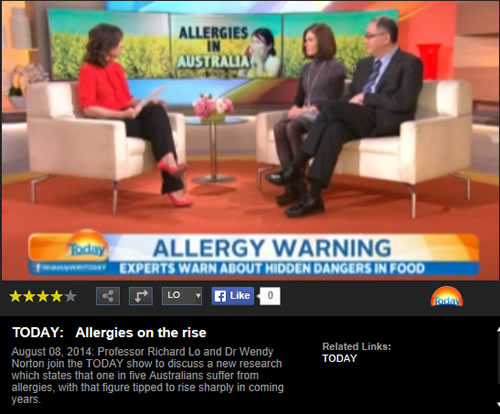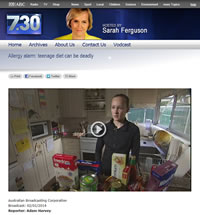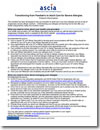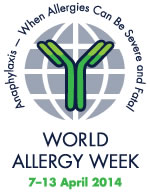National Allergy Strategy for Australia decided at the world’s first Allergy Summit
Experts agree that allergies are major public health issue in Australia and national action is needed.
 National Allergy Strategy for Australia decided 11 August 2014503.08 KB
National Allergy Strategy for Australia decided 11 August 2014503.08 KB
The world's first Allergy Summit took place in Sydney on August 8th. There were 60 invited participants including consumers and a wide range of medical specialists and key organisations from across Australia. This Summit was convened in partnership by the Australasian Society of Clinical Immunology Allergy (ASCIA) and Allergy & Anaphylaxis Australia (A&AA).
The scope of discussions included the impact of allergic diseases, their cost, the need for improved access to care, standards of care, education and training, research and policy, with a focus on possible solutions.
"The Allergy Summit was a great step forward, bringing together key representatives from a large number of backgrounds to work together to identify goals and strategies to address a major chronic disease affecting a large proportion of the Australian population." says Dr Melanie Wong, a leading specialist Allergy and Immunology physician and President-Elect of ASCIA.
"The Allergy Summit was the beginning of a new phase in the management of allergic diseases in Australia," said Dr Wong.
"The aim of the National Allergy Strategy will be to improve access to appropriate healthcare services and improve the quality of life of people with allergic diseases and those who care for them," says Associate Professor Richard Loh, President of ASCIA.
"We all agreed on the need for a National Allergy Strategy," says Maria Said, President of A&AA.
The National Allergy Strategy will be developed over the next six months and further funding will be sought to hold an implementation meeting in April 2015.
Read more …National Allergy Strategy for Australia decided at the world’s first Allergy Summit



 Terry's young daughter Nina has an allergy to peanuts and may develop life threatening anphylaxis after exposure to them.
Terry's young daughter Nina has an allergy to peanuts and may develop life threatening anphylaxis after exposure to them.

 ASCIA acknowledges that teenagers may need some guidance in transitioning from paediatric to adult care and as a result has produced an important new document for patients called
ASCIA acknowledges that teenagers may need some guidance in transitioning from paediatric to adult care and as a result has produced an important new document for patients called  World Allergy Week is an initiative of the World Allergy Organization (WAO). This year the focus is on increasing awareness of anaphylaxis.
World Allergy Week is an initiative of the World Allergy Organization (WAO). This year the focus is on increasing awareness of anaphylaxis.